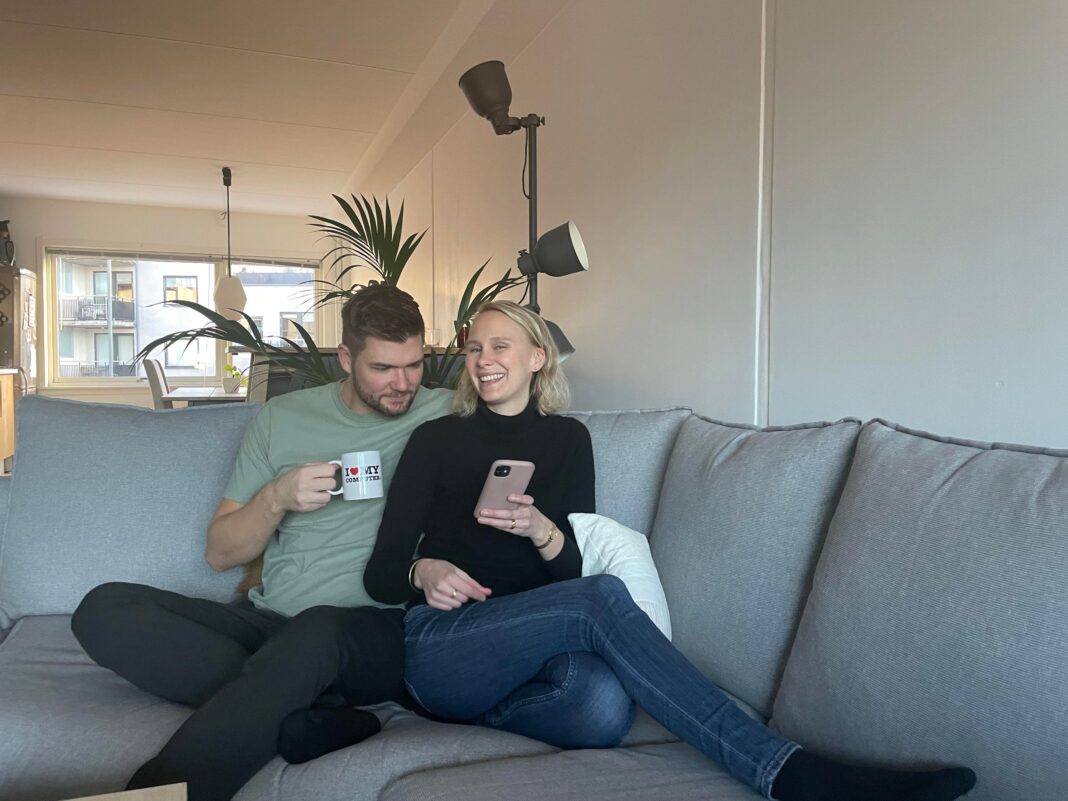Innovation Editors’ Pick Choreful Aims To Quell Couple Fights With Gamification Michaella Huck Contributor Opinions expressed by Forbes Contributors are their own. I love writing about diversity and venture capital! New! Follow this author to improve your content experience. Got it! Jun 16, 2022, 06:00am EDT | Share to Facebook Share to Twitter Share to Linkedin Robin Havre and his girlfriend Eva Berntsen check their productivity score in the Choreful.
app Choreful. app Choreful is an app with an origin story that should absolutely sing to anyone whose ever been in love with someone who never met a dish they could ever be bothered to wash, pick up a wet towel that didn’t belong on the carpet or a bed they needed to make. Indeed, Robin Havre shares his app’s provenance as if he’s catering to the thousands and thousands woman on TikTok who paired #weaponizedincompetence with a three-minute rant over the exhausting necessity of spelling out a fair division of labor to their domestic partners.
It starts with a personal story, as so many startups do. Havre, 36, didn’t cook dinner often in the Oslo home he shared with his girlfriend, Eva Bernsten. So on the one evening last year, he decided to, Havre expected Bernsten to clean the table.
Instead, after a long day at work and dinner, Bernsten picked up a book and sat on the couch to relax. This broke into an argument so that evening Havre, an app developer by trade, sat down in front of his computer and threw together some code to build his first version of Choreful, an app that turned chores into a competition. “It was meant as a humorous, little bit passive-aggressive joke to find out who did the most chores and that was how it all started,” Havre tells Forbes.
Havre figured it wouldn’t go much further, but when he started showing friends, “they either thought it was completely ridiculous or they wanted a copy,” he tells Forbes . Havre continued to make tweaks as Choreful gained traction among his friends and in December 2021, he shared his new app on TikTok, the same social media platform where, just five months earlier, a woman’s hilariously detailed grocery list for her husband went viral. The next morning, Havre says, he had about 500 new subscribers to his mailing list, all eagerly awaiting Choreful’s official launch on the app market in Norway.
So Havre pushed Choreful to the top of his to-do list, took time off from his day job to bootstrap that launch into reality. MORE FOR YOU Google Issues Warning For 2 Billion Chrome Users Forget The MacBook Pro, Apple Has Bigger Plans Google Discounts Pixel 6, Nest & Pixel Buds In Limited-Time Sale Event Disgruntled partners in the U. S.
and U. K. can now find Choreful in the Apple App Store and Google Play, where it launched in April, less than a year after its Norway debut at the end of 2021 .
With 172,300 registered users and around 26,000 monthly active users, Choreful is a mop bucket overflowing with chore-sharing apps, many targeted towards nuclear families. There’s Sweepy, Chore and Allowance Bot, all garnering four-star reviews in the App Store, with Cozi Family Organizer in the lead, claiming 20 million registered users. Like many of these apps, Choreful offers free and premium access.
Premium access gives users an ad-free experience, ability to create custom cores, ability to add rewards and see statistics per chore. Premium subscriptions are $3. 99 monthly or $29.
99 for a yearly subscription for a single account accessible by multiple users in one household. While only 0. 9% of registered users have a paid subscription, Havre, who brought on two more developers to share the load, says Choreful has brought in about $60,000 in revenue since its December debut.
Certainly, there’s plenty of data to support a place for Choreful with its focus on helping keep couples harmonious. Women in the U. S.
spend two hours more each day cleaning, cooking, taking care of children and doing other unpaid work than men, according to a 2020 report by Oxfam and the Institute for Women’s Policy Research . Then there’s the experts. Nikki Lively, a clinical therapist with the Family Institute at Northwestern University, says she doesn’t believe a true division of labor and chores is possible.
But apps like Choreful could help to bridge the gap between feeling overworked and feeling loved. Taking on tasks (without being asked) can be a form of love. “I feel loved, because I’m able to rely on you to do these things,” Lively explains.
This, too, is reflected in data. Household chores are now an important part of a healthy relationship, according to a 2018 study conducted by Council on Contemporary Families. Couples who split chores report the highest levels of martial and sexual satifaction, it found.
What’s more, Egalitarian couples have 0. 5 times more sex per month than couples with a lopsided division of labor, according to a 2016 study published in the Journal of Marriage and Family. For Havre, it’s about the right to fairness in the household especially when both parties are working adults coming home after a long day of work.
“There are two elements to this, at least in my experience,” he says. “One is that it motivates the couples to share the workload more equally. And the other thing is that it makes your partner see and recognize the work that you do.
” Follow me on Twitter . Michaella Huck Editorial Standards Print Reprints & Permissions.
From: forbes
URL: https://www.forbes.com/sites/michaellahuck/2022/06/16/choreful-aims-to-quell-couple-fights-with-gamification/



